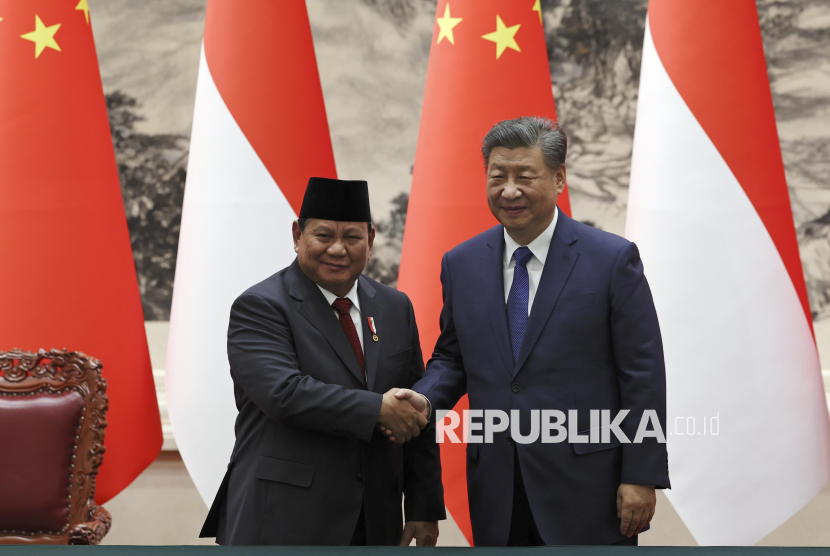REPUBLICA.CO.ID, JAKARTA -- Results of a meeting between President Prabowo and President Xi Jinping in Beijing on Saturday (9/11/2024) and agreed to cooperate on managing the waters claimed in an overlapping manner. Navy Chief of Staff Admiral Muhammad Ali said the agreement between Indonesian President Prabowo Subianto and Chinese President Xi Jinping on overlapping claims of waters in the South China Sea was aimed at preventing tensions in the region.
“We are sticking to UNCLOS 82, but we are opening up a pattern of cooperation. So, let there be no infighting. We maintain security stability and peace in the region,” Admiral Ali said.
Ali said that President Prabowo was trying to prevent any form of conflict in the region, but he did so by upholding the 1982 United Nations Convention on the Law of the Sea (UNCLOS). “If it can benefit everyone, that's better, and I think that's the way out of contention all this time. We will lower tensions, tensions in the South China Sea,” Admiral Ali said.
Ali also reminded Indonesia is not a non-claimant state to claim territory in the South China Sea. “So, we're not in a territorial wedge. No territorial waters are intersected with nine-dash-lines or ten-dash-lines,” Admiral Ali said.
Nine-dash-line and ten-dash-line refer to China's unilateral claims to the South China Sea that do not refer to UNCLOS, but to China's traditional-historical claims. China's unilateral claim does not cover Indonesia's territorial waters, but it overlaps with the North Natuna Sea, which is Indonesia's exclusive economic zone (EEZ). The North Natuna Sea is on the southern side of the South China Sea.
“The real warming is indeed in the South China Sea to the north, if not so much to the south,” Admiral Ali said.
Therefore, he believes that the whole issue can be resolved through law and diplomacy. “We have always believed that all sides can reduce tensions in the region, because China also asks us for help to maintain security stability and peace stability in the region,” Admiral Ali said.


